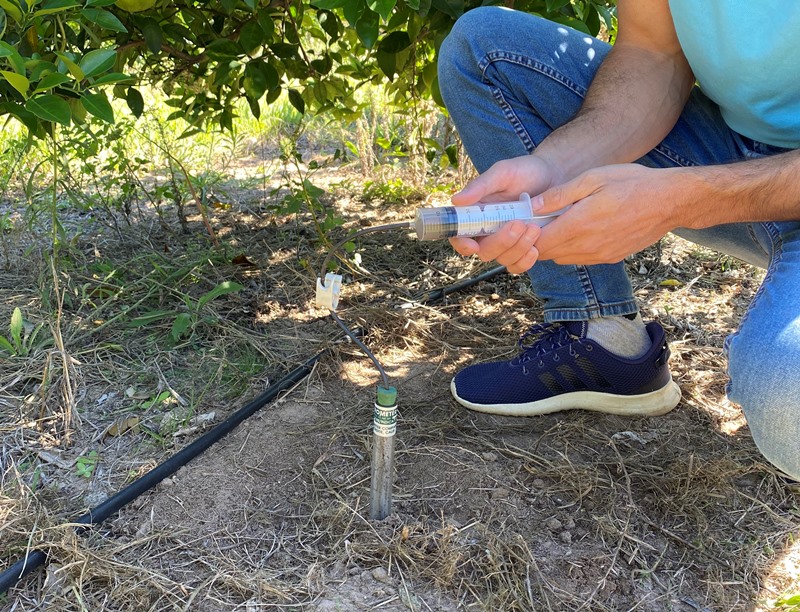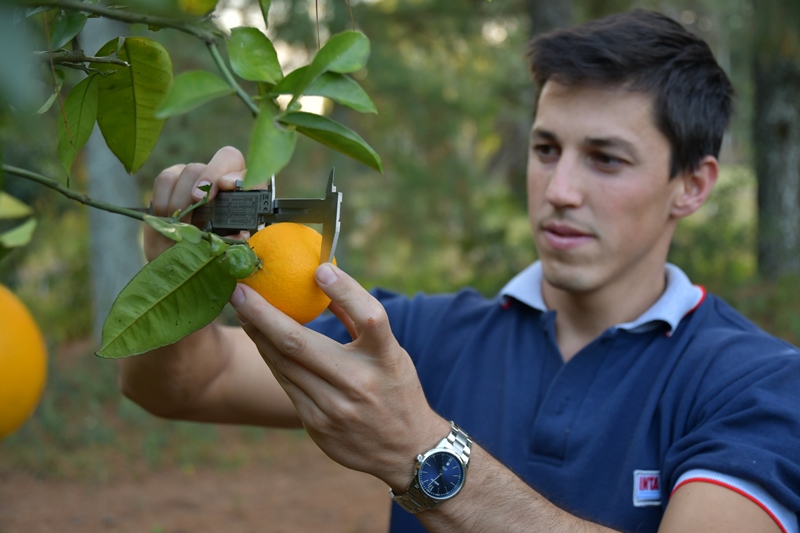A study carried out by INTA Concordia and the Universidad Nacional del Litoral evaluated different ways of applying nitrogenous fertilizers and determined that fertigation allows increasing orange production and obtaining larger fruits. Recommendations to achieve proper management, ensure nutrients for plants and minimize the impact on the environment.
Argentina is among the main citrus producing countries worldwide. In the province of Entre Ríos there is approximately 26% of the total surface of the country for citrus activity, which includes the cultivation of mandarin, grapefruit, lemon and orange. For this reason, a team of researchers from the WHILE IN CONCORDIA and from the Universidad Nacional del Litoral (UNL) evaluated different ways of applying nitrogenous fertilizers and focused on the study of fertigation, as a technique that allows a more efficient application of the fertilizer, in orange plants of the Salustiana variety.
Alejandro Battistella, specialist in fertigation in fruit crops from INTA Concordia -Entre Ríos-, pointed out that “the application of nitrogenous fertilizers is favorable for the cultivation of oranges, in this case, of the Salustiana variety.” And he added: “Through the use of fertigation, a technique that allows the application of fertilizers in fractions at the times and quantities that the crop requires, we registered an increase in the production of the fruit, a greater amount of nutrients in the leaves and an increase in the size of the oranges.”
Nitrogen is one of the best studied nutrients in citrus production, largely due to the high requirement demanded by this crop. In this sense, Battistella explained that “nitrogen fertilization is beneficial for citrus fruits, since they require an optimal concentration of nitrogen for good yield and fruit quality.”
In Entre Ríos, citrus is produced in deep, alluvial soils with a sandy texture. Due to the characteristics of these soils, irrigation and fertilization have to be carried out in a planned and scheduled manner, since its poor implementation, added to the application of high doses of fertilizers and the abundant rainfall in the region, promote leaching – process by which mobile forms of nitrogen, such as nitrate, leach into the soil profile and can contaminate groundwater.
According to the provincial citrus census of 2015/2016, of the 36,387 hectares cultivated with citrus, 40% have irrigation and only 5.6% of the total area uses fertigation technology. “The study carried out at INTA is a kick for the adoption of more efficient and environmentally friendly technologies, however, at present, the annual amounts of nitrogen that are lost by leaching and its effect on the production of citrus fruits are unknown. ”, indicated Battistella who warned that this problem is an unknown to be solved, to optimize the use of nitrogenous fertilizers and move towards a sustainable management of available environmental resources.

–
The increased application of nitrogen in soils where citrus is grown increases fruit production. However, it is essential to ensure that nitrogen is not lost through the leaching process. “Due to the characteristics of the sandy soils in the province, fertigation proved to be a promising technique to prevent the potential transport of nitrates in the soil solution,” said the INTA researcher.
In this sense, Battistella pointed out the importance of correctly adjusting the application systems and the amounts of nitrogen to this type of soil. “The management of fertilization, through fertigation, would be an important complement to ensure an adequate supply of nitrogen in the long term, as well as regulating the forms of soluble nitrogen to ensure that the needs of the plants are covered, thus minimizing the environmental damage due to losses of nitrogen that moves from the plant to the ground,” he said.
–


